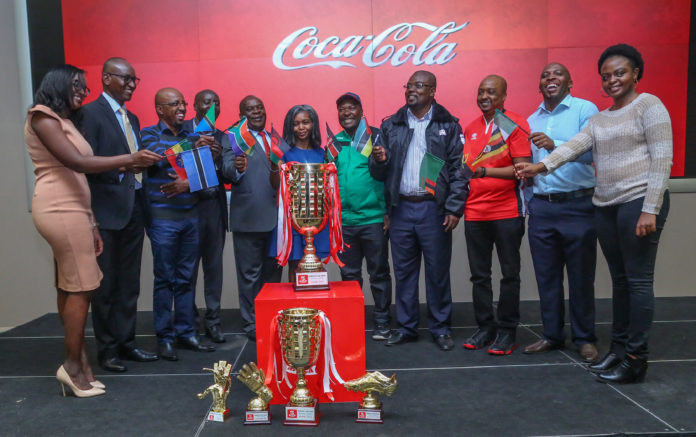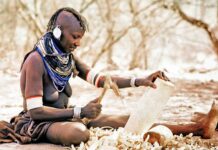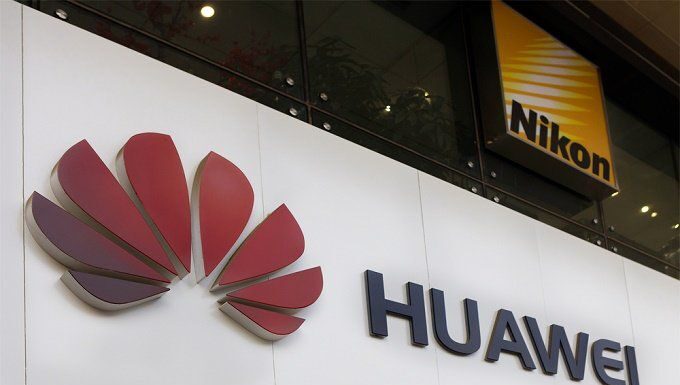
The inaugural tournament is a convergence of soccer talent from around the continent in a move that aims to tap into the immense potential from the soccer lads
The inaugural Under-16 COPA Coca-Cola Africa Cup of Nations football tournament will be hosted in Kenya in Nakuru County from the 10th to 15th December 2018.
The first of its kind continental tournament will be bring together players from twelve African countries to showcase their football prowess. Christened the ‘New Dawn’ in the COPA Coca-Cola annual tournaments, the championship is modelled to liken the Confederation of African Football (CAF) Africa Cup of Nations which will be held in Cameroon in 2019.
“Since its inception in Zimbabwe in 1989, the COPA Coca-Cola journey has been exceptional, traversing continents to emerge as a global phenomenon. Once again, Africa will be leading in initiating a youth tournament to showcase grass root football talents,” said Rodney Nzioka – Senior Franchise Brand Manager, Coca-Cola, Kenya.
The twelve countries participating in this year’s tournament include; Angola, Malawi, Nigeria, Uganda, Tanzania, Mozambique, Ethiopia, Zambia, Zimbabwe, Botswana, South Africa and the hosts Kenya.
“We are delighted to be associated with this platform to harness talent, nurture and give them an avenue to prosper. We are grateful to parents for giving us a chance to develop the next generation of great football stars. The Coca-Cola Company is committed to the success of the tournament and we are looking forward to a great display of talent,” added Nzioka.
The need for the continental showpiece has been informed by a vision to grow the tournament from a country level into an international tournament that allows young people to not only play with their counterparts but have the chance to be scouted by recruiters from all over the world.
Coca-Cola enables people around the world to experience and celebrate their passion for football. The Company has one of the longest corporate partners of FIFA with a formal relationship since 1974 and an official sponsorship of FIFA World Cup™ that began in 1978.
“The Coca-Cola Company invested in the FIFA World Cup Trophy Tour 2018 where we visited more than 50 countries including Kenya to bring the World Cup closer to the people. Today, we will be pushing the envelope further to assist soccer players across the continent realize their sporting potential at continental level and to fulfil their dreams of being African Champions in the hope of one day, lifting the prestigious World Cup trophy,” said Ahmed Rady – The Coca-Cola Company Franchise General Manager – East Africa.
“As the host of the tournament, Coca-Cola in Kenya has partnered with Kenya Secondary Schools Sports Association (KSSSA) to manage the tourney. Their support and involvement has been key to ensuring the success of the tournament. We encourage our media partners, coaches and scouts to walk with us in this journey of unearthing the untapped talent. It is also our hope, that the talented teens can be drafted for call-ups to every respective national youth teams set-ups,” asserted Rady.
Football is rife in the continent with numerous programs taking place across various regions with many considering it as the primary past time. Soccer builds a lot of passion in people. The passion combined with the Company’s commitment to nurture football talent has mooted the COPA Coca-Cola Africa Cup of Nations tournament.
Previously, the Company has been taking gifted players for specialized training at the COPA Coca-Cola Global Camp. The inaugural trip was a tour in Rio de Janeiro in Brazil with subsequent tours being in Johannesburg and Durban in South Africa, London-United Kingdom, and Paris-France.
Grassroots football is credited to have led the rise of football standards in major football clubs in Europe and across the world. According to FIFA, data obtained from its 207-member associations, in 2007, an estimated 265 million people play football. Of these, 9.4 million youth under-the-age of 18 worldwide were registered in football clubs. The trend may rise only if stakeholders all play a part in development of the sport.


















